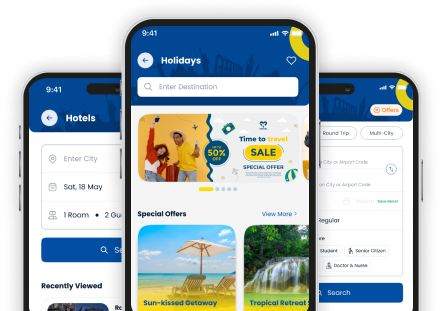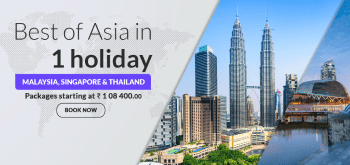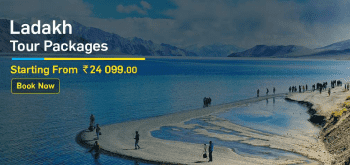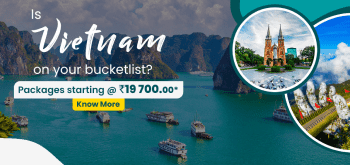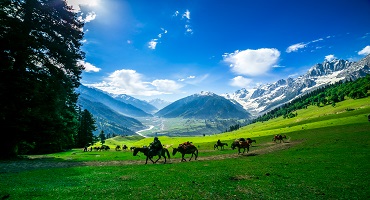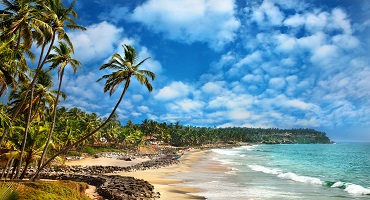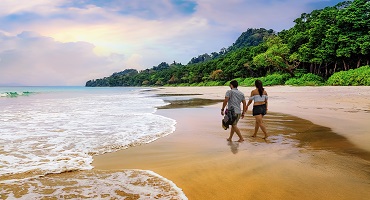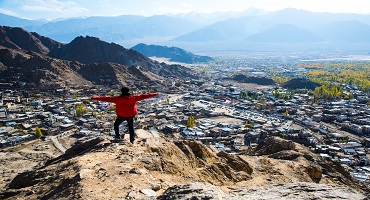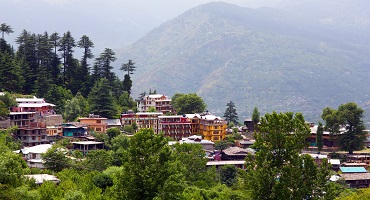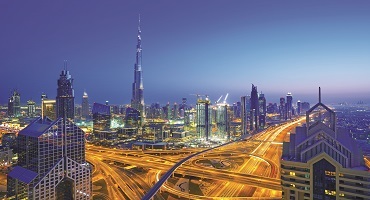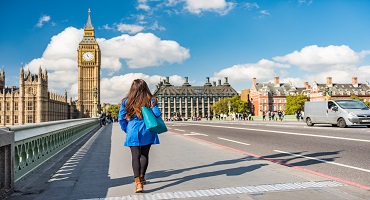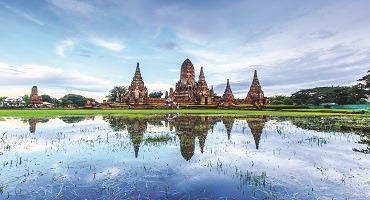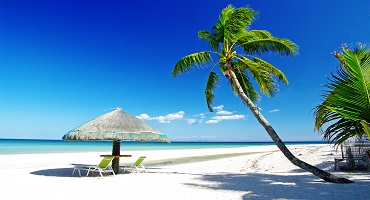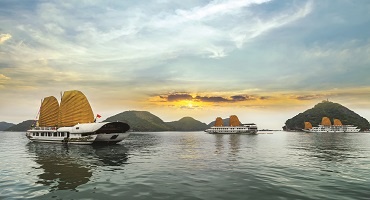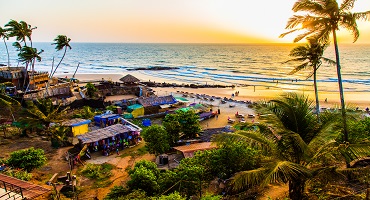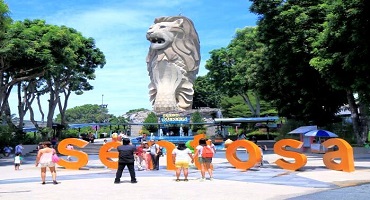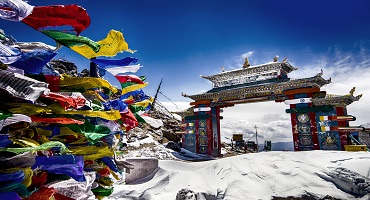Melbourne – Where Moments are Melodious
The land of laneways. The vicinity of vinyl. The boulevard of brunches. The community of coffee connoisseurs. Melbourne tourism is a canvas for everything multi-cultural and multi-sensorial. A city of profound juxtapositions – the sleekness of the CBD and the quaintness of the suburbs. A city with spirituality running through its veins and history echoing in its ears. A city that welcomes the young and the old, the rich and the poor, the local and the foreigner with equal opportunity. The mecca of arts, sports and education… Melbourne is waiting to be your best mate!
| Melbourne Tourism: A Quick Guide View For Melbourne |
| Country |
Australia |
| State |
Victoria |
| Official Language |
English |
| Dial Code |
+61 3 |
| Population |
4,936,349 (as of 2018) |
| Time Zone |
AEST (UTC + 10) |
| Currency |
Australian Dollar (AUD) |
| Area |
9,992.5 square kilometres |
Highlights of Melbourne: Melting Pot
Art & Culture of Melbourne
Arts Centre Melbourne proudly wears its title of being Australia’s largest performing arts venue. With over 4,000 performances and public events in its repertoire, Melbourne welcomes approximately 3 million people through its glittering doors. From graceful ballet to soulful orchestra, haunting opera and expressive theatre, this cultural hub thrive with storytelling, song, dance and celebration.
The oldest and most visited gallery in Australia, National Gallery of Victoria dazzles with its impressive collection of international and local art, architecture, sculptures, exhibitions and events. An infinite treasury of 70,000 pieces spanning a thousand years, NGV reflects diverse ideas, styles and disciplines.
Hosier Lane is one of the secret ingredients to making Melbourne so special! Synonymous with the city’s quirky street art and culture, this bluestone laneway teems with a frenzied array of colours, patterns, shapes and characters. One must navigate through the stencil art, murals and installations that adorn every corner of the multicolored labyrinth-lanes.
History of Melbourne
The lush Carlton gardens house Australia’s first heritage-listed building – The Royal Exhibition Building. Built in 1880 to reflect the opulence and spirit of Melbourne, this exquisite edifice has cultural, artistic, educational, political, royal and spiritual significance. From acting as a makeshift hospital during the 1919 Spanish Influenza to shape-shifting into an examination hall for university students and event space for numerous shows and festivals, REB has stood the test of time.
The Shrine of Remembrance takes on a creamy-classical style, much like the Parthenon in Athens, Greece. It consists of a marble sanctuary and a crypt. Built as a war memorial for the veterans of World War I, this magnificent structure offers a spectacular view of the entire city.
Parliament House of Victoria served as the meeting place of the Australian Government, during the time Melbourne served as the temporary capital of the nation. Its neoclassical façade consists of an exceptional Library, Eastern Wing, Queen’s Hall, Chambers, Vestibule and Proposed Dome.
Nature in Melbourne
Royal Botanic Gardens is an enchanting oasis of emerald greens, sapphire water and amethyst skies. A hamlet for the preservation of rare and threatened plants, the park protects the exquisite natural biodiversity of Victoria. And the best part is, it transforms into magical sceneries during the multitude of festivals that it hosts.
St Kilda is one of Melbourne’s finest beaches. It teems with charming cafes, restaurants and boutiques. Stretches of warm-white sand extend to meet the sparkling baby-blue sea. A rustic pier bridges into the water. In the night, one can spot little penguins nesting happily!
The stunning region that is Yarra Valley hugs the crystalline Yarra river and caresses a vast stretch of gift-wrapped land. The epicenter of delightful vineyards and exotic wineries, Yarra entices tourists with its delicious chardonnay, pinot noir and sparkling wine. One can take tours of the awe-inspiring grounds, sip gorgeous wines and feast on sumptuous local produce.
Food in Melbourne
Degraves Street epitomizes Melbourne’s eclectic coffee and brunch culture, alfresco dining options and animated street art. A narrow cobblestone laneway bustles with bars, cafes, restaurants and shops with the most beautiful smells, sounds and sights. Here are some of our recommendations for a hearty meal – freshly brewed coffee, gooey scrambled eggs, fluffy baked French bread, spoons full of seafood pasta and thin crust Pizza.
Visiting Lygon Street is like flying to Little Italy. It is said that this Italian precinct is where the authentic café culture of Melbourne was born. Here, one will discover scrumptious, delectable and mouth-watering Italian fare that is truly authentic. From gnocchi to ravioli, risotto and pasta, gelato and churros, wine and chocolate, the gorging options are endless.
Sports in Melbourne
Melbourne Cricket Ground is the 10th largest cricket stadium in the world. It has served as the venue for the 1956 Summer Olympics, the 2006 Commonwealth Games and Cricket World Cups -- 1992 and 2015. You can tour the pristine grounds and visit the accompanying library and museum for an insight into the fascinating world of Cricket.
Home to the iconic Australian Open, Rod Laver Arena is an elite sporting ground that reverberates in Tennis history. It also hosts basketball, super crosses, concerts, conferences, WWE events and ballet.
Interesting facts about Melbourne: Mesmerising Trivia
- Melbourne tourism is unique to its weather. It’s possible to experience all 4 seasons in one day, making it an uncanny phenomenon.
- Melbourne houses the largest population of Greeks and Italians, outside Europe.
- Melbourne is the uncrowned sports capital of the world. It hosts the likes of Cricket, Tennis, Football, Formula 1, Motorcycle racing and Horse racing.
- In 1850, Melbourne was the richest city in the world due to the Victorian Golden Rush.
- The largest urban tram network in the world can be found in Melbourne.
- Melbourne was ranked the world's most liveable city for seven years in a row - 2011 to 2017. It is now ranked the second most liveable city in the world.
Location of Melbourne: Urban and Rural
The most populous city in the south-eastern state of Victoria, Melbourne dons the crown of capital. Its metropolitan area consists of 31 municipalities spread across 9,992.5 square km of land. The city encompasses most of the coastline of Port Philip Bay and stretches into the hinterlands towards Dandenong and Macedon ranges, Mornington Peninsula and Yarra Valley respectively.
Click here to view Melbourne on Google Map
Best time to visit Melbourne
Melbourne is synonymous with its changeable weather conditions. This can be attributed to it being located on the boundary of hot inland areas and the cool Southern Ocean. As such, it is important to understand that the city experiences varied forms of severe weather throughout the year. This includes thunderstorms, gales, hail and sunshine.
When it comes to the best time to visit, it much depends on what kind of weather you seek. Although the weather is extremely unpredictable, here is what you can generally expect. December to March witnesses the unrelenting blaze of the summer. Temperatures can rise as high as 38 degrees, but it is graced with cool evening winds that act as a balm. This season is the best time to explore Melbourne in terms of its street art, sporting events and music festivals.
Winter spreads its wings between the months of June and August, dipping to below 5 degrees. For those of you who enjoy the cold, this is the loveliest time to visit Melbourne for you can enjoy the wonderful tradition of Christmas in July. The pleasant months of spring (September to November and March to May) are ideal for picnicking, barbequing and cycling across the city.
How to Reach Melbourne: Get ready for Straya!
By Air - Melbourne Airport (Tullamarine) is a modern, well maintained and well-connected International airport. There are direct non-stop flights available from New Delhi which is the most convenient way to reach Melbourne. If you choose to fly from other cities such as Mumbai, Bangalore or Pune you will need to transit via Delhi or other international cities depending upon the airline you select. On arrival, there are a range of transport options available to drop you to your accommodation. You can select from airport taxis and bus services such as the Sky Bus that leaves every 15 minutes.
History of Melbourne: Roots and Rivalry
Indigenous Australians have lived in the city of Melbourne for as long as 40,000 years. In fact, the regional tribes of Wurundjeri, Boonwurrung and Wathawurrung were among the first to inhabit the region. Between 1836 and 1842, the aboriginal tribes faced great turmoil at the hands of European settlers. They were dispossessed of their land and relegated to squalid camps. Despite former treaties between the locals and the invaders, the latter slowly but surely gained full control. By 1845 approximately 240 wealthy Europeans had formed a powerful alliance, holding all the pastoral licenses of the Victorian state. In the year 1847, Queen Victoria declared Melbourne as an official city. In the year 1851, the colony of Victoria was formed after Port Philip separated from New South Wales. It was then that Melbourne was declared the capital.
